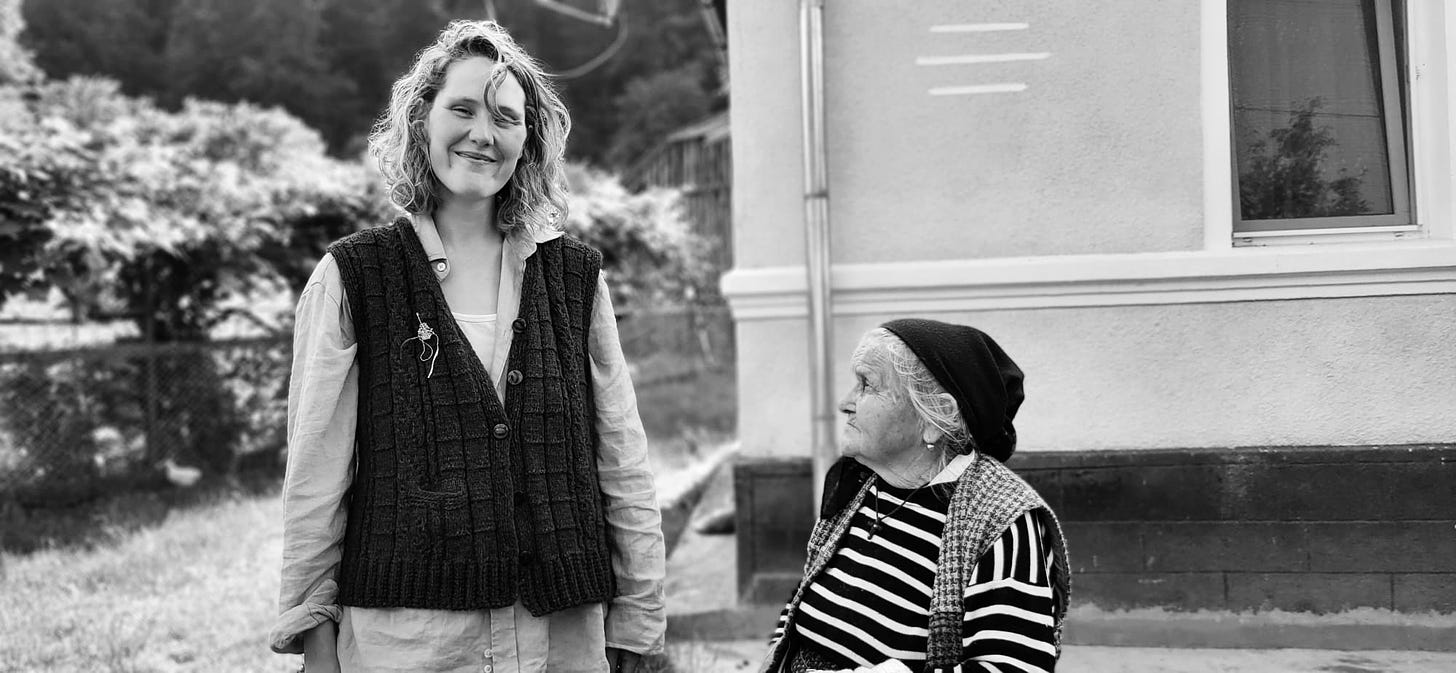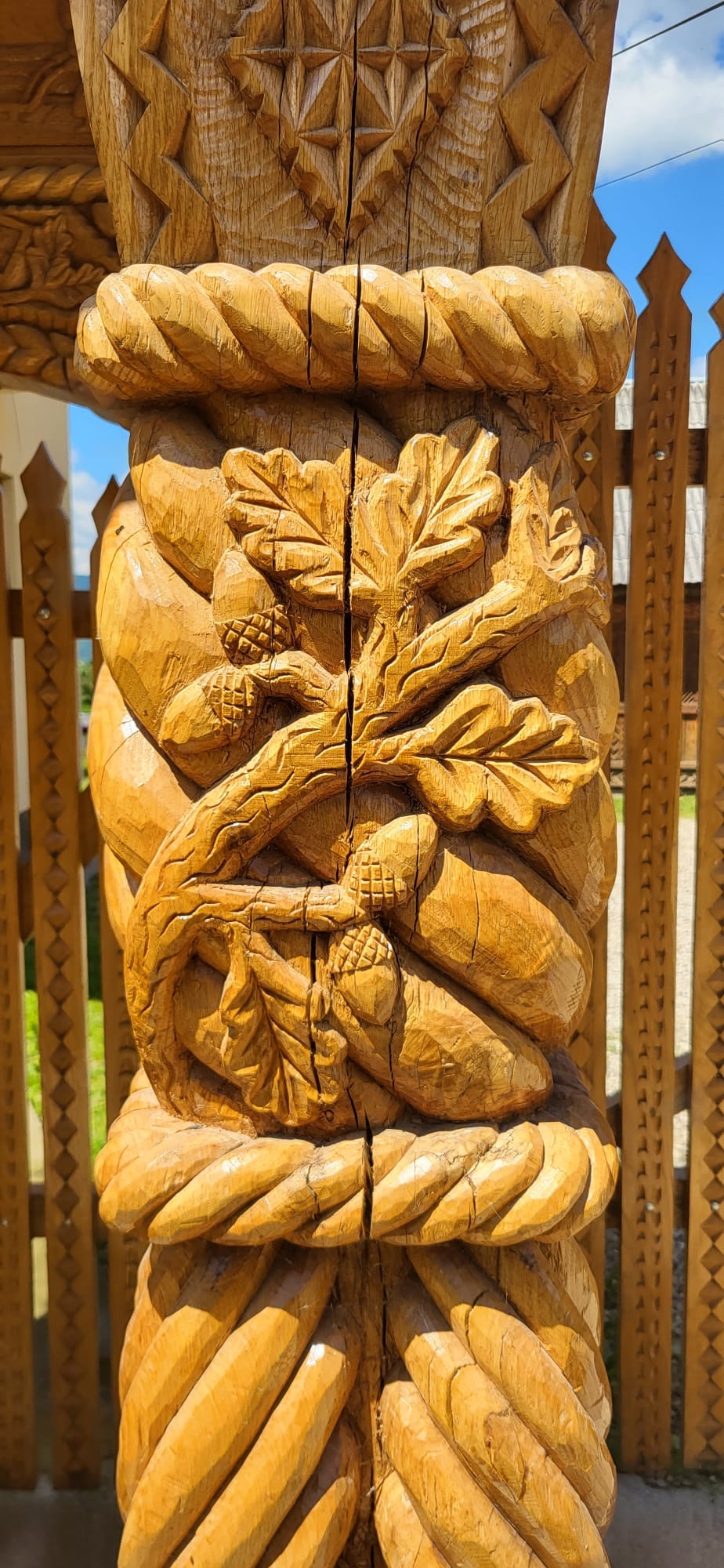They say there is a woman, hunched beside the light of a flickering flame praying for us all. I think I have met this woman. I think I have met her in many places, many times. Always she has a different face, a different name. The eyes seldom change. Death always accompanies her, glints warmly beneath the waters of her eyes. Reminding the observed of their impermanence. The truths of this life. I needn’t tell you of her stare again, but I will. I will because I see it, piercing through me as if to reach out a hand & teach me a lesson from her world to mine, across an ocean, across mountains.
Since coming home, I’ve seen that my travels to Maramures orbit around these two events, the meeting of a woman & a village. You have been introduced to the woman. Let me show you the village.
Breb is small. A dusty, sometimes muddy path runs a circle around the scattering of hand built wooden houses. The wood speaks of the wind & the rain, the weathering of years in this remote corner of the earth. Some of the houses are shrouded by ornate wooden gates, carved with the symbols of rope, oak leaves, flowers, the phrases ‘I am & I will be’, ‘God is Love’.
These gates are the descendants of older times. They speak of a world where men & women were not free. When freedom was something that defined place. People in the mountain villages like Breb, where each family had a considerable domain were called free peasants, they were ‘nămeși’ (nameshi). The Romanian term indicates belonging to a small clan from the Romanian ‘neam’ (bigger old family). Having a gate expressed a families ‘nămeși’ identity. A gate was a very physical boundary between the private domain of the home & the world/people beyond the gate. The gate offered refuge from surveillance of the other, the elite. They offered a means for creative expression & a way to show off the level of craftmanship the neam possessed.
The air of the village is thick with the smell of pig shit, chickens, burning hay & the occasional waft of honeysuckle. Of the houses that do not have a gate, children play with the animals in the yard. Their mucky faces cast with something that reminds me of home, of Barnsley; a stare that occupies both hardness & joy at an age where hardness should seldom be known. Dark circles illuminate eyes that have already felt the horrors of poverty.
A man in a royal blue jumpsuit walks his pig on a lead. He wears a threadbare flat cap pulled down over his forehead, he is smoking. “Bun Ziewa”, he says as he passes, his eyes barely meeting my own. I can hear the pools of tobacco & damp living conditions deep in his lungs. Curdled & thick.
The villagers are both kind & cold. Some possess a friendliness that has the whiff of obligation. A few carry with them a barbed desperation, a sort of yearning to have what the tourists have & a disgust in themselves for wanting it. Others nurture a curious distaste. A curiosity to search the aesthetic of the tourist for evidence to support presuppositions as facts. A handful, our host Elena included radiate a loving warmth, a generosity that speaks to the belly.
I do not feel uncomfortable with the uncompromising faces of the villagers. I feel settled by them. Feel at home with the brazenness of their honesty, their disgust toward the ethics & capital tourists possess. If anything, I am relieved by their disdain & glad. Glad because it tells me that The Machine hasn’t robbed these people of their spirit or their gated customs. Nor their want for freedom. A wrestle to retain the authentic still ensues.
Keep reading with a 7-day free trial
Subscribe to r o o t & r o c k to keep reading this post and get 7 days of free access to the full post archives.




